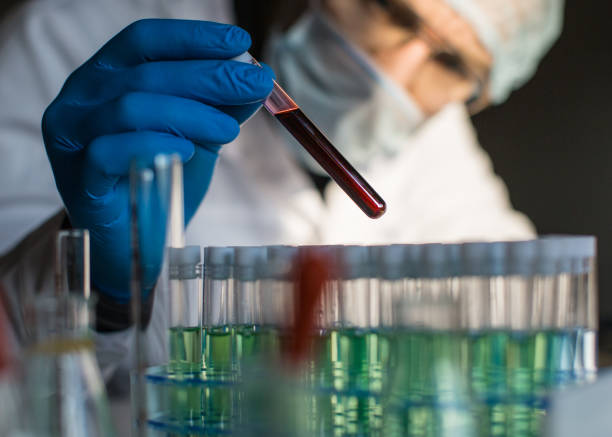Title: The Unforeseen Crisis: Navigating the Coronavirus Pandemic
In late 2019, an unprecedented crisis emerged on the global stage that would alter the course of history: the coronavirus pandemic. This crisis, caused by a novel virus named SARS-CoV-2, brought the world to a standstill, revealing vulnerabilities in healthcare systems, economies, and societal structures. As the pandemic unfolded, governments, scientists, and individuals raced to understand, contain, and adapt to this new reality.
The Origin and Spread
The coronavirus pandemic originated in Wuhan, China, where the first cases of a mysterious pneumonia-like illness were reported. Soon, it became clear that a new virus was responsible, belonging to the coronavirus family. With its high transmission rate, the virus quickly spread across borders, reaching every corner of the globe within months. The World Health Organization (WHO) declared the outbreak a pandemic in March 2020, acknowledging the dire need for international coordination and action.
Healthcare Systems Under Strain
Healthcare systems worldwide faced unprecedented challenges during the pandemic. Hospitals struggled to accommodate the overwhelming number of patients, leading to shortages of beds, ventilators, and protective equipment for healthcare workers. The virus's rapid spread highlighted the importance of robust healthcare infrastructure and the need for quick adaptations to meet the crisis.
Economic Turmoil
The pandemic's impact on the global economy was profound. Lockdowns, travel restrictions, and supply chain disruptions caused businesses to shutter and unemployment rates to soar. Governments introduced massive stimulus packages to support struggling industries and provide financial relief to individuals. Remote work and digital solutions gained prominence, showcasing the adaptability of businesses in the face of adversity.
Scientific Endeavors and Vaccine Development
Scientists and researchers worldwide collaborated at an unprecedented pace to understand the virus, its transmission, and potential treatments. The development of vaccines was a remarkable achievement. Within a year of the pandemic's onset, multiple vaccines were authorized for emergency use, providing a glimmer of hope for ending the crisis. Vaccine distribution, however, revealed global inequalities, as access was limited in low-income countries.
Societal Impact and Adaptations
The pandemic prompted profound societal shifts. Lockdowns and social distancing measures led to widespread remote work and virtual gatherings. Education systems pivoted to online learning, revealing both the potential and challenges of technology in education. Mental health came to the forefront as isolation and uncertainty took a toll on individuals worldwide.
Global Cooperation and Confronting Misinformation
The coronavirus pandemic underscored the importance of global cooperation in addressing crises. Countries shared data, research findings, and best practices to combat the virus. However, misinformation and conspiracy theories also proliferated, hindering efforts to control the pandemic. Social media platforms and governments grappled with the challenge of curbing the spread of false information.
Path to Recovery
As the pandemic persisted, the path to recovery became a global priority. Mass vaccination campaigns were launched, aiming to achieve widespread immunity and control the virus's spread. The pandemic also prompted discussions about preparedness for future health crises, emphasizing the need for robust healthcare systems, early warning mechanisms, and international collaboration.
Lessons Learned
The coronavirus pandemic exposed the vulnerabilities of our interconnected world. It highlighted the importance of agile healthcare systems, adaptable economies, and the essential role of science in crisis management. The crisis also demonstrated the power of human resilience, innovation, and solidarity in times of adversity.
Conclusion
The coronavirus pandemic, an unforeseen crisis of historic proportions, challenged nations, communities, and individuals in ways never imagined. It reshaped daily life, tested the limits of healthcare systems, and prompted a rapid acceleration of scientific progress. As the world continues to navigate the pandemic's aftermath, the lessons learned will undoubtedly shape the way we approach future challenges, emphasizing the importance of preparedness, cooperation, and a shared global commitment to safeguarding humanity.
In late 2019, an unprecedented crisis emerged on the global stage that would alter the course of history: the coronavirus pandemic. This crisis, caused by a novel virus named SARS-CoV-2, brought the world to a standstill, revealing vulnerabilities in healthcare systems, economies, and societal structures. As the pandemic unfolded, governments, scientists, and individuals raced to understand, contain, and adapt to this new reality.
The Origin and Spread
The coronavirus pandemic originated in Wuhan, China, where the first cases of a mysterious pneumonia-like illness were reported. Soon, it became clear that a new virus was responsible, belonging to the coronavirus family. With its high transmission rate, the virus quickly spread across borders, reaching every corner of the globe within months. The World Health Organization (WHO) declared the outbreak a pandemic in March 2020, acknowledging the dire need for international coordination and action.
Healthcare Systems Under Strain
Healthcare systems worldwide faced unprecedented challenges during the pandemic. Hospitals struggled to accommodate the overwhelming number of patients, leading to shortages of beds, ventilators, and protective equipment for healthcare workers. The virus's rapid spread highlighted the importance of robust healthcare infrastructure and the need for quick adaptations to meet the crisis.
Economic Turmoil
The pandemic's impact on the global economy was profound. Lockdowns, travel restrictions, and supply chain disruptions caused businesses to shutter and unemployment rates to soar. Governments introduced massive stimulus packages to support struggling industries and provide financial relief to individuals. Remote work and digital solutions gained prominence, showcasing the adaptability of businesses in the face of adversity.
Scientific Endeavors and Vaccine Development
Scientists and researchers worldwide collaborated at an unprecedented pace to understand the virus, its transmission, and potential treatments. The development of vaccines was a remarkable achievement. Within a year of the pandemic's onset, multiple vaccines were authorized for emergency use, providing a glimmer of hope for ending the crisis. Vaccine distribution, however, revealed global inequalities, as access was limited in low-income countries.
Societal Impact and Adaptations
The pandemic prompted profound societal shifts. Lockdowns and social distancing measures led to widespread remote work and virtual gatherings. Education systems pivoted to online learning, revealing both the potential and challenges of technology in education. Mental health came to the forefront as isolation and uncertainty took a toll on individuals worldwide.
Global Cooperation and Confronting Misinformation
The coronavirus pandemic underscored the importance of global cooperation in addressing crises. Countries shared data, research findings, and best practices to combat the virus. However, misinformation and conspiracy theories also proliferated, hindering efforts to control the pandemic. Social media platforms and governments grappled with the challenge of curbing the spread of false information.
Path to Recovery
As the pandemic persisted, the path to recovery became a global priority. Mass vaccination campaigns were launched, aiming to achieve widespread immunity and control the virus's spread. The pandemic also prompted discussions about preparedness for future health crises, emphasizing the need for robust healthcare systems, early warning mechanisms, and international collaboration.
Lessons Learned
The coronavirus pandemic exposed the vulnerabilities of our interconnected world. It highlighted the importance of agile healthcare systems, adaptable economies, and the essential role of science in crisis management. The crisis also demonstrated the power of human resilience, innovation, and solidarity in times of adversity.
Conclusion
The coronavirus pandemic, an unforeseen crisis of historic proportions, challenged nations, communities, and individuals in ways never imagined. It reshaped daily life, tested the limits of healthcare systems, and prompted a rapid acceleration of scientific progress. As the world continues to navigate the pandemic's aftermath, the lessons learned will undoubtedly shape the way we approach future challenges, emphasizing the importance of preparedness, cooperation, and a shared global commitment to safeguarding humanity.




